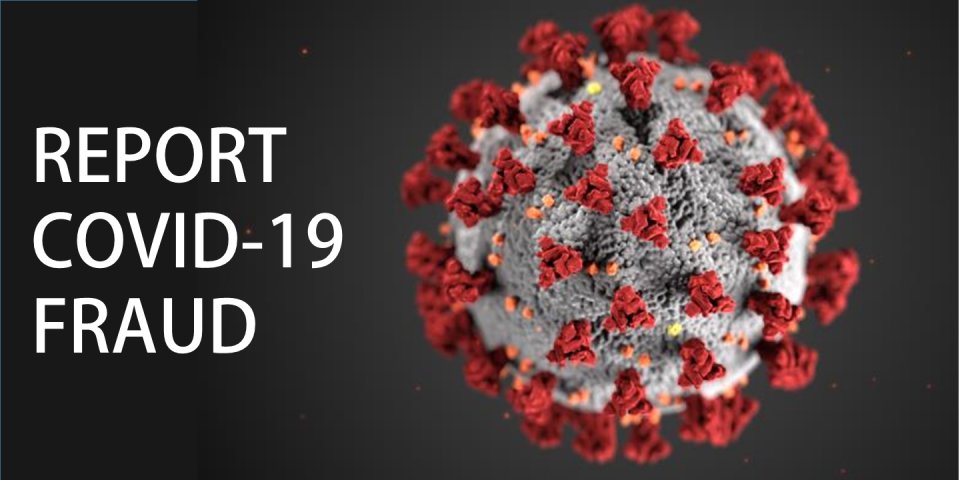Beware 21st Century snake oil sellers
Scammers aim to pick investors' pockets
If it sounds too good to be true, it's probably a scam.
Covid-19 cures and remedies have become this year's snake oil.
It sounds good but doesn't work. And you can lose your money.
…
This item is available in full to subscribers.
Subscribe to continue reading. Already a subscriber? Sign in
Get 50% of all subscriptions for a limited time. Subscribe today.
Please log in to continueNeed an account?
|
Beware 21st Century snake oil sellers
Scammers aim to pick investors' pockets
If it sounds too good to be true, it's probably a scam.
Covid-19 cures and remedies have become this year's snake oil.
It sounds good but doesn't work. And you can lose your money.
SC Attorney General Alan Wilson urges investors to proceed cautiously with covid-19 investments.
Be aware that fraudsters try to take advantage of the buzz about companies promoting pandemic products and services.
Fraudsters are peddling "miracle cures" or purportedly innovative technologies.
While some could be legitimate, many will leave investors with nothing but broken promises and empty pockets.
These pitches may include offers to invest in medical technology or health care companies by buying memberships in general or limited partnerships, stock or “penny stock.”
These may include private placement offers, initial coin offerings or other cryptocurrency-related investments, or crowdfunding. Many of schemes share common characteristics.
- They focus on fear and anxiety by promoting safe returns independent of the stock market and the economy.
- They exploit trendy assets such as cryptocurrencies or complex investment programs involving foreign currencies. While they may sound new or exciting, these types of products also are very unfamiliar to most inexperienced retail investors.
- They refer to returns as “passive income” or “cash flow” and promise to pay it on a monthly basis, which may appeal to unemployed retail investors or others negatively impacted by changes in the economy.
- They often misrepresent the risks associated with the investments or use professional-looking webpages to attempt to add legitimacy to the fraudulent offerings.
How to Protect Yourself
- Do not invest money you cannot afford to lose.
- Do your research. Check out the individuals or companies behind the investment. Searching the web can reveal civil, criminal, or regulatory actions taken against companies or individuals.
- Ask key questions about the business and its promoters before you hand over any money in a private placement offering.
- Contact the Securities Division to learn more about the investment opportunity, the salesperson, and the promoter.
- Before putting your money into a healthcare investment or any investment, ask questions about the risks and fees involved. Conduct your own independent research or seek the opinion of a financial professional who is registered with the Securities Division. Never invest in something you do not fully understand.
- Be wary of participating in a general partnership or joint venture if you have no specific experience, knowledge or education in the industry sector – which is often the healthcare industry for coronavirus-related frauds – and would have to rely on others’ expertise.
- Resist sales techniques that include repeated phone calls, cold calls, e-mails, or high-pressure sales pitches hyping the profitability of the deal or promising a sure thing.
- As a general rule, do not give out personal information in response to random emails, texts, or phone calls even if they appear to be from a reputable individual or government organization. Visit government websites directly for trustworthy information.
- Remember that fraudsters can be quite good at producing professional-looking websites boasting current productivity levels and profits and containing professional appearing photos of vaccine or medical equipment production sites. These websites can easily be faked.
- Read the fine print. Every investment is unique. Do not assume that what you have been presented with is the same or has similar terms as other offerings you may have seen.
Check the SEC's website to find out whether the company files any reports or other disclosures with the SEC.
Read the reports and disclosures and verify any information you have heard about the company.
What You Can Do
Before making investment decisions, be sure you understand who and what you are investing in.
Verify the status of investment professionals and find out whether they have a history of customer harm by contacting the Securities Division at 803-734-9916 or go to www.scag.gov/registering-a-complaint , or use the tools available from the SEC and FINRA.
Keywords
Attorney, General, Alan, Wilson, scammers, investors, COVID-19Other items that may interest you







Comments
No comments on this item Please log in to comment by clicking here